My guest is Brad Kelly, an author, prolific podcaster, and expert on a wide (wide, wide) range of esoteric subjects. Visit his website bradkellyesque.com, where you’ll find information about his latest novel House of Sleep. You’ll also find Brad’s writing on the Tarot, which we discuss in depth on the show, and some of his excellent short stories.
Links and recommendations from Brad Kelly
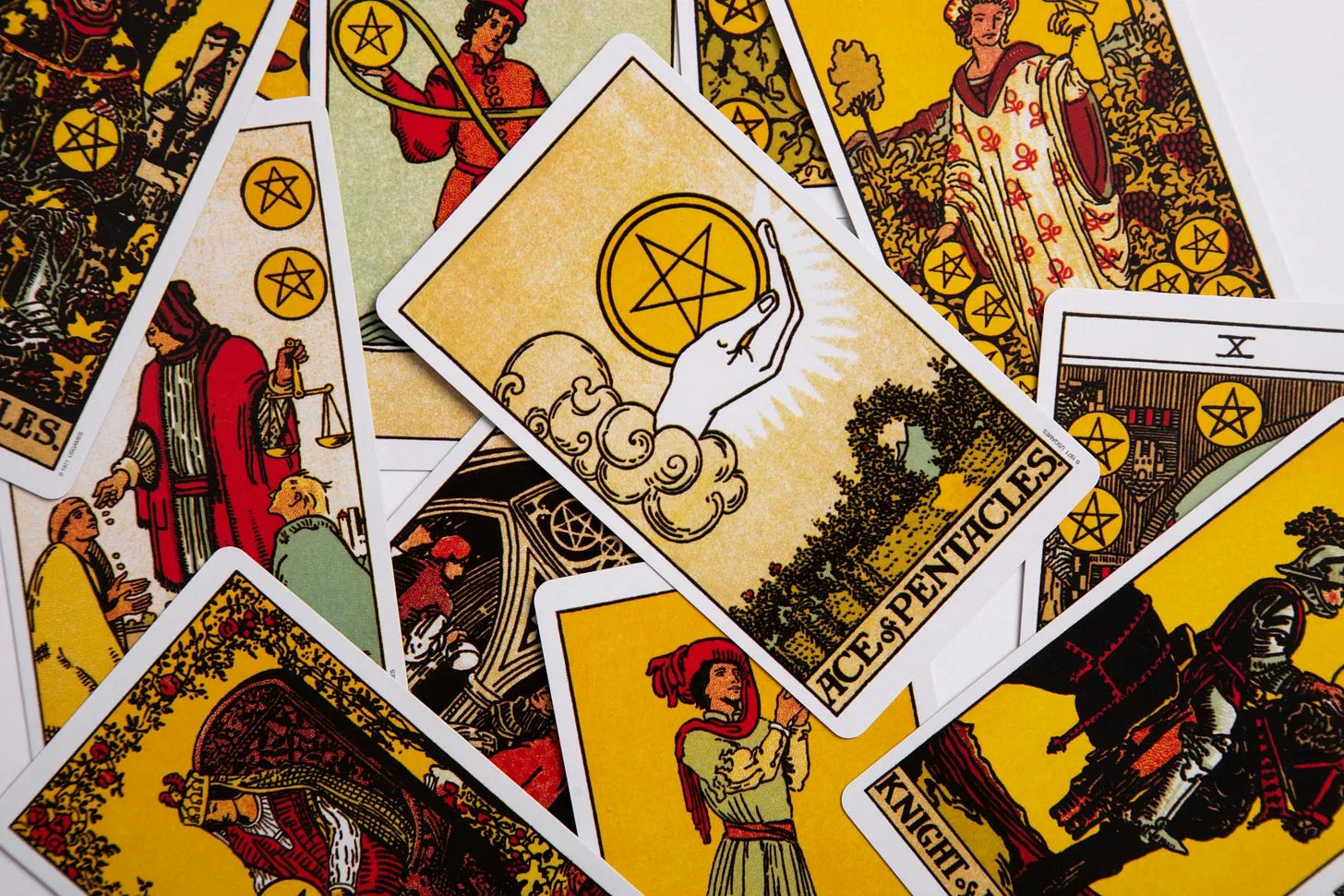
Brad and I discuss the podcast that led me to his work, Art of Darkness, which he co-hosted with Kevin Kautzman until earlier this year. I mention a few of my favourite episodes, including an exploration of the darkness in the hearts of Philip K. Dick, and legendary comedian Bill Hicks. Later, we talk about the question of suffering for your art, and I mention Emmanuel Carrère’s devastating and brilliant biography of Dick, I Am Alive and You Are Dead.
Brad’s new podcast is the excellent Method and Madness, co-hosted with Aaron Gwyn. Like Art of Darkness, Method and Madness explores the writing life, and the inspirations and lore behind seminal novels and cult writers. When Brad and I spoke, the show was preparing to launch — now they have several episodes under their belts. A few of my favourites so far include a deep dive into William Gibson’s Neuromancer, with Aaron and Brad joined by friend of the pod Ewan Morrison, and a multi-part exploration of Cormac McCarthy’s No Country for Old Men. We talk in depth about both podcasts towards the end of the show.
We talk a little about our journeys as writers, with Brad graduating from an MFA (in my case an MLitt). We talk about what it takes to find your voice in both fiction and nonfiction. Like me, Brad wrote a novel as part of his studies, but never ended up publishing it — nevertheless, that experience provided the formative step from ambitious amateur writer to published author. We also both mentioned our formative childhood memories of being given a typewriter — something young writers born after 2000 probably won’t have experienced. I still have vivid memories of carrying around my old portable Singer, which I begged my parents for in the late 1980s.
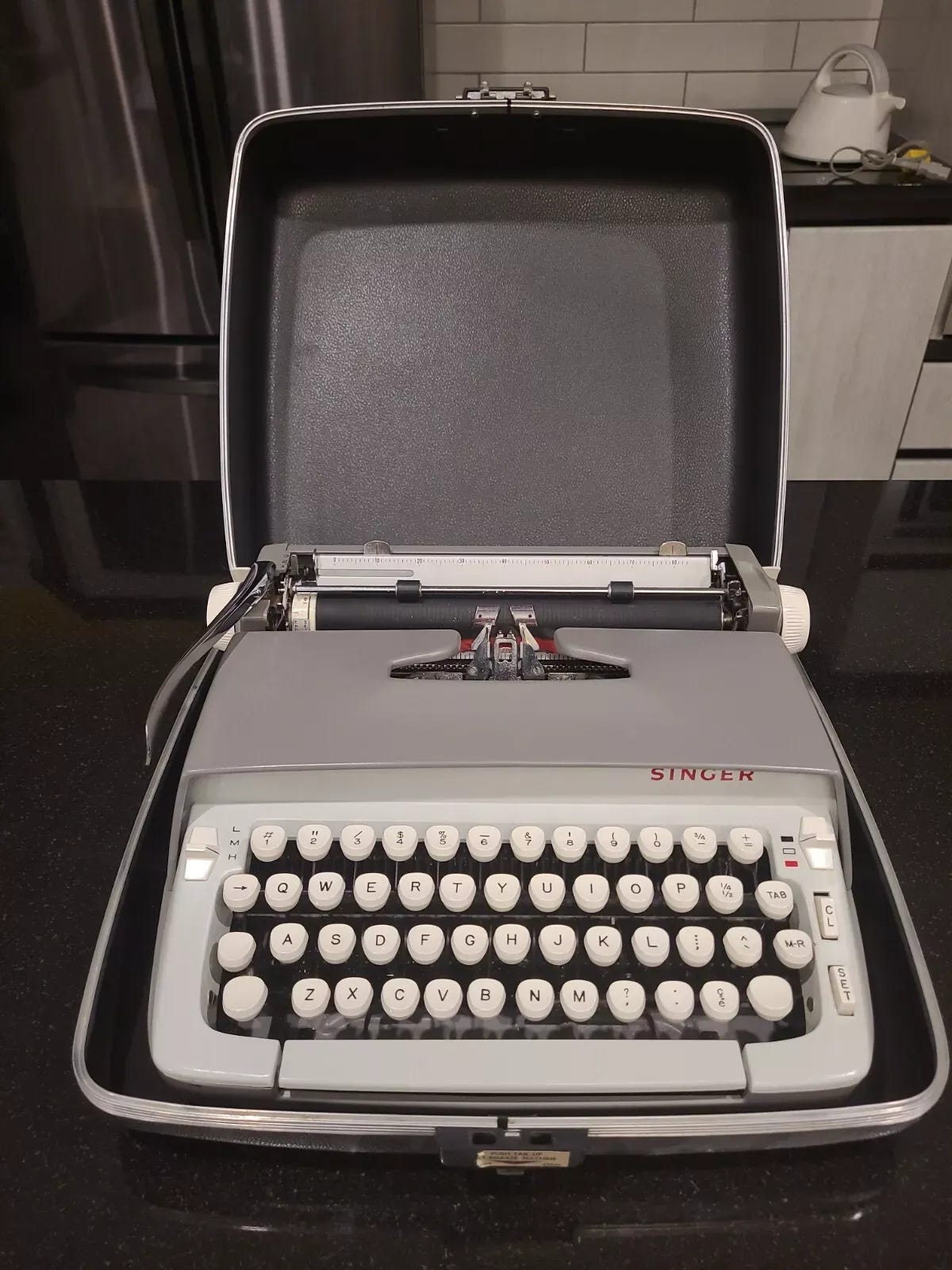
Interestingly, when asked for his formative influences, Brad mentions Jack Kerouac and Franz Kafka. Having read House of Sleep and some other bits of Brad’s writing, I can see how deep those early influences go. I’m sure the same can be said of my fiction (mostly off the internet now), which I am certain still bears strong traces of Philip K. Dick and Roald Dahl. I was obsessed with PKD’s short fiction, and quickly found my way from Dahl’s children’s books to his mystery and suspense stories.
Brad also mentions the great master of commercial horror Stephen King — sounds like we both ate up every King paperback we could put our hands on, probably with a torch underneath a blanket, after the rest of the house had gone to sleep. Any aspiring prose writer who hasn’t devoured On Writing, King’s book on the craft and career of a fiction writer, is definitely missing out.
I mention my love for the ‘Bachman books’, written between 1977 and 1982, including The Running Man, which offered tense, near-future violent thrills — a world away from King’s better-known and more fantastical horror writing. Rage, a ‘straight’ novel about a high-school shooting, is a terrific book, and feels eerily prescient now. Steve Brown, a librarian, first uncovered the similarities between King and Bachman’s writing — the story of that remarkable discovery is told here.
In terms of the writers he wanted to emulate, Brad says the foremost of these was Cormac McCarthy, due to the fact he was one of the last writers who didn’t have to self-promote, or engage with the media, in order to sell books. It’s true that ‘Great American’ writers like McCarthy are thin on the ground these days. The sheer narrative, emotional and visual power of books like The Road and Blood Meridian are hard to deny. My favourite of his is the dense, haunting Outer Dark, which for me offered a masterclass in the power of leaving things unsaid or un-shown in a story.
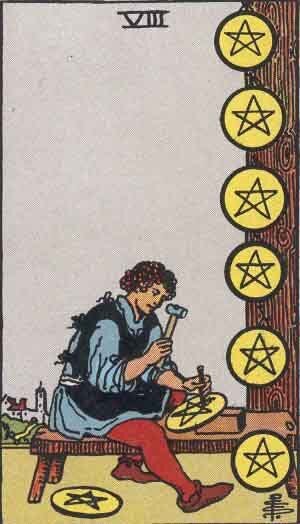
Next, we begin to unpack Brad’s curious, esoteric and often very moving writing on the Tarot. On Brad’s site, the stories (or vignettes, or interpretations) of the Tarot are told using a masterful and elegant combination of personal reflection, historical analysis, and aesthetic contemplation. These are beautiful essays that don’t so much explain the Tarot, but rather explore and synthesise it, making it useful for those who could be skeptical about its use, origin or meaning. It’s deliciously difficult to pin down, as a piece of writing. Go to Brad’s site and click through each card to discover the essays for yourself.
It was fascinating hearing Brad talk about the inspiration, process and journey of this project — I won’t unpack it here, but it was a fantastic window into his technique. Brad talks about the work of poet and novelist Sabrina Orah Mark, whose essays on fairytales and mythology were eventually published as the book Happily.
We begin to discuss the Tarot in depth, and I briefly mention the Windrow-Ravenswood Deck, a beautiful and eldritch Tarot deck designed by my old friend Dee Abracaskus, aka Tormented Artifacts.
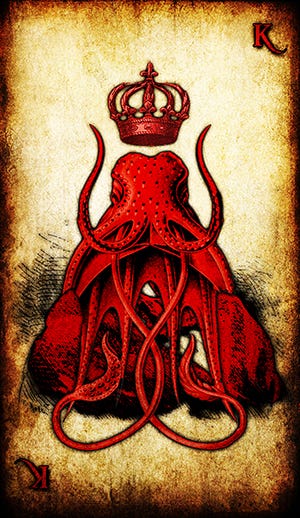
We also discuss an early episode of Strange Exiles with combat magician Ian ‘Cat’ Vincent. That’s now available in our Substack podcast archive, look out for more ‘Redux’ episodes soon. We discuss the twinned origins of magic, mythology and science, my knowledge of which comes from Sir James-George Frazer’s 1890 classic of comparative religion The Golden Bough, and Kurt Seligmann’s vast tome The History of Magic.
I managed to pick up a copy of Seligmann’s book while backpacking in New Zealand and lugged it around for several months, completely fascinated by his deeply researched and beautifully illustrated accounts of the birth of magical systems, from alchemy and scrying to the kabbalah, Tarot and beyond; and how these tie in with the roots of the scientific method and the ‘age of reason’.
I mention Amsterdam’s Embassy of the Free Mind, which I wrote about in the final chapter of The Darkest Timeline. There’s more about the kabbalist and philosopher Menasseh Ben Israel here.
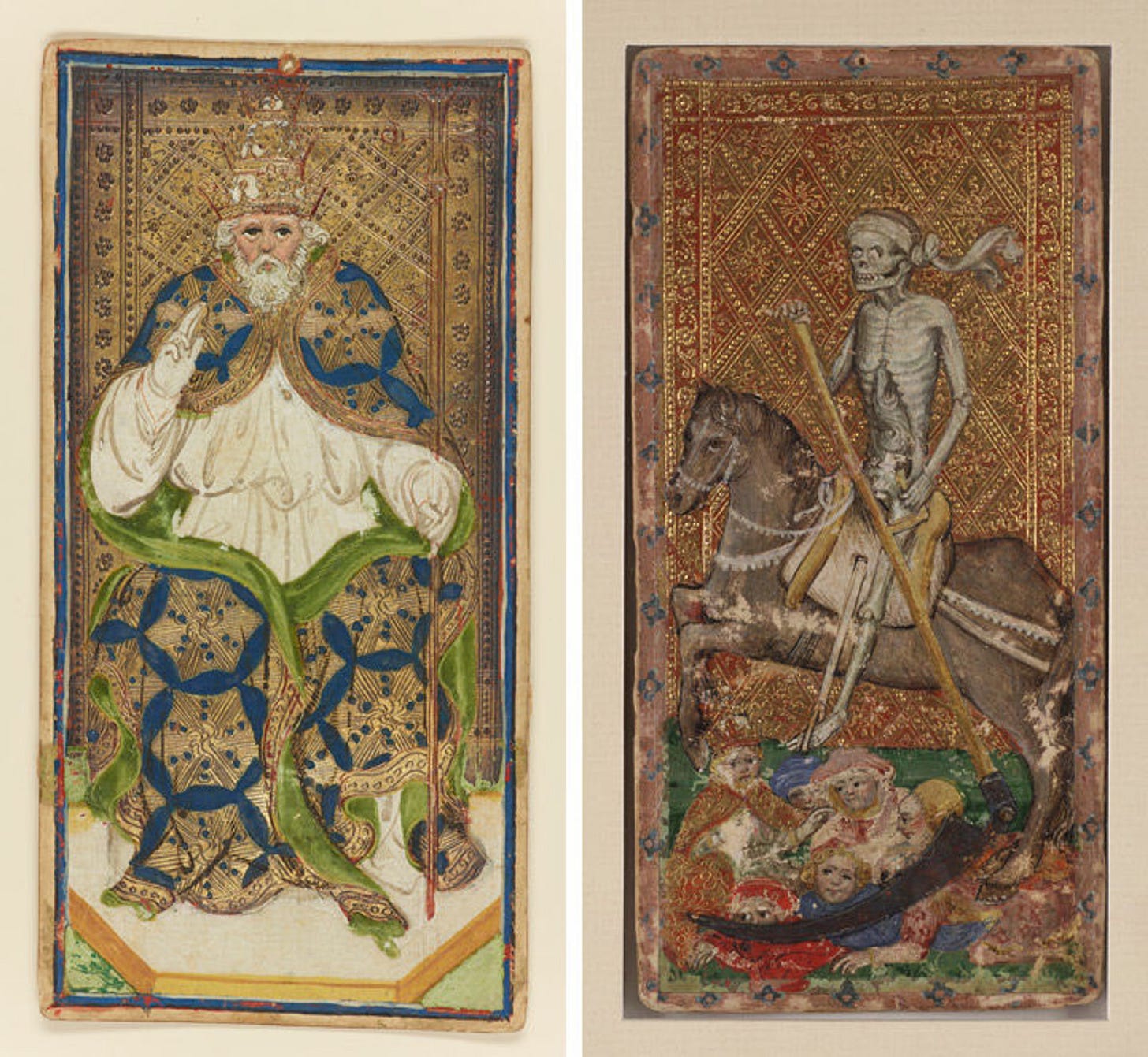
The Metropolitan Museum has a good feature on the history of Tarot, which focuses on the oldest surviving European deck, the Visconti-Sforza Tarot, which Brad discusses along with the deeper Egyptian inspirations and early precursors of the later iterations. Brad mentions the early twentieth-century Rider-Waite Smith Tarot, his preferred deck, which you can read about on the Tarot Heritage site. He also touches on the nineteenth-century Marseilles Tarot — Tarot Heritage also cover the history of the Marseilles deck. I briefly talk about Austin-Osman Spare’s Tarot, which was recently reissued in a beautiful edition by Strange Attractor, who also published Lost Envoy: The Tarot Deck of Austin Osman Spare.
Brad talk about the breakout podcast The Telepathy Tapes, which has come under fire from various journalists for its links to the discredited ‘science’ of facilitated communication. Check out the deep dive into the podcast from Blocked and Reported, and a recent Guardian article by Jackson Ryan for more on the controversy behind the approach to the subject of autism by the show’s creator Ky Dickens.
We go on to discuss Brad’s novel House of Sleep, a subversive, vividly-written, gothic psychological horror tale which I devoured in a couple of sittings. At times Ballardian satire inspired by psychedelic CIA mind control experiments, at others a cultish take on the classic ‘old, dark house’ trope, the book is peopled with curious and eccentric characters who really jump off the page. You can listen to the audiobook of House of Sleep here. Brad’s website describes it as follows:
At an exquisite mansion perched on an edenic plateau, twenty-some guests are remembering their dreams as clearly as yesterday. All that’s required is to let an eccentric guru called the Diving Man work their subconscious like a snake-charmer. Parts Willy Wonka, Judge Holden, and Tim Leary, he seems to know what can’t be known, professes a bizarre philosophy, and spends his days leaping from the cliffs to hold his breath for minutes on end in the churning river below. He is also plotting against the dissolution of the world. The House draws Lynn, an anxious, earnest therapist who foresaw her fiancé’s death in a dream. . .or, just maybe, called it into being. This is her last chance to heal, but only if she can come to terms with her dark connection to another seeker—the young logophile Daniel, who is afflicted with a strange disease inextricable from an even stranger gift.
We talk a little about genre, riffing off the way David Lynch used tropes and elements of horror and science fiction. We talk a little about Oz Perkins, and his films Longlegs and The Monkey, which while more conventional than Lynch, share some of his extra-dimensional weirdness. Brad mentions David Leo Rice as a writer exploring similar, if more political, territory.
Rice is new to me, so that’s another book in the ‘must read’ pile — Brad recommends his most recent novel, The Berlin Wall. I mention Mark Z. Danielewski’s House of Leaves and China Miéville’s The City and The City, two of my favourite experimental books of all time (in the latter’s case, provably unfilmable), and Ari Aster’s Midsommar, which I wrote about here for Revol Press (that essay will be coming to Revol’s Substack soon). This is going back a fair bit, but I also had the pleasure of interviewing Danielewski in 2014.
We finish up by talking about UAPs (or UFOs, if you want to be traditional), and Brad discusses Carl Jung’s 1959 book Flying Saucers: A Modern Myth of Things Seen in the Sky. I won’t link to them here, but I’m a stupidly avid consumer of the Rogan shows with people like Jacques Vallée, Graham Hancock and Luis Elizondo. Even though much of what they talk about (probably most of it) is a mixture of wild conjecture, confirmation bias, pareidolia and dodgy science, I find thinking about the prospect of alien life and visitors from other worlds endlessly fascinating.
Recent testimony by whistleblowers, the contents of FOIA discoveries, and the much-debated ‘Go-Fast’ and ‘Gimbal’ videos all feel like they’re trending towards what the conspiracy community call ‘disclosure’ — the moment where the US (or even the world’s) government finally admit that the aliens are real, and among us. As a lifelong science fiction fan, a big part of me wants to believe, no matter how frightening that reality might prove to be.
Next up… Chris Kelso

I’ll be back soon, talking to writer, spoken word artist and illustrator (and most recently, experimental post-rock/metal musician) Chris Kelso, author of experimental novels like VOIDHEADS, The Dregs Trilogy, the nonfiction work Burroughs and Scotland, and many more. We’ll be talking about his new music project Vantablack, which you can sample below.
Expect a couple of episodes this month as I catch up on a busy few weeks of recording and editing. Until next time… take care of each other.
-Bram, Glasgow, April 2025
Support my work:
Explore my writing: linktr.ee/bramegieben
Read my book: linktr.ee/thedarkesttimeline
Follow @strangeexiles for updates on Instagram and Twitter











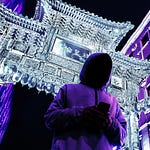


Share this post